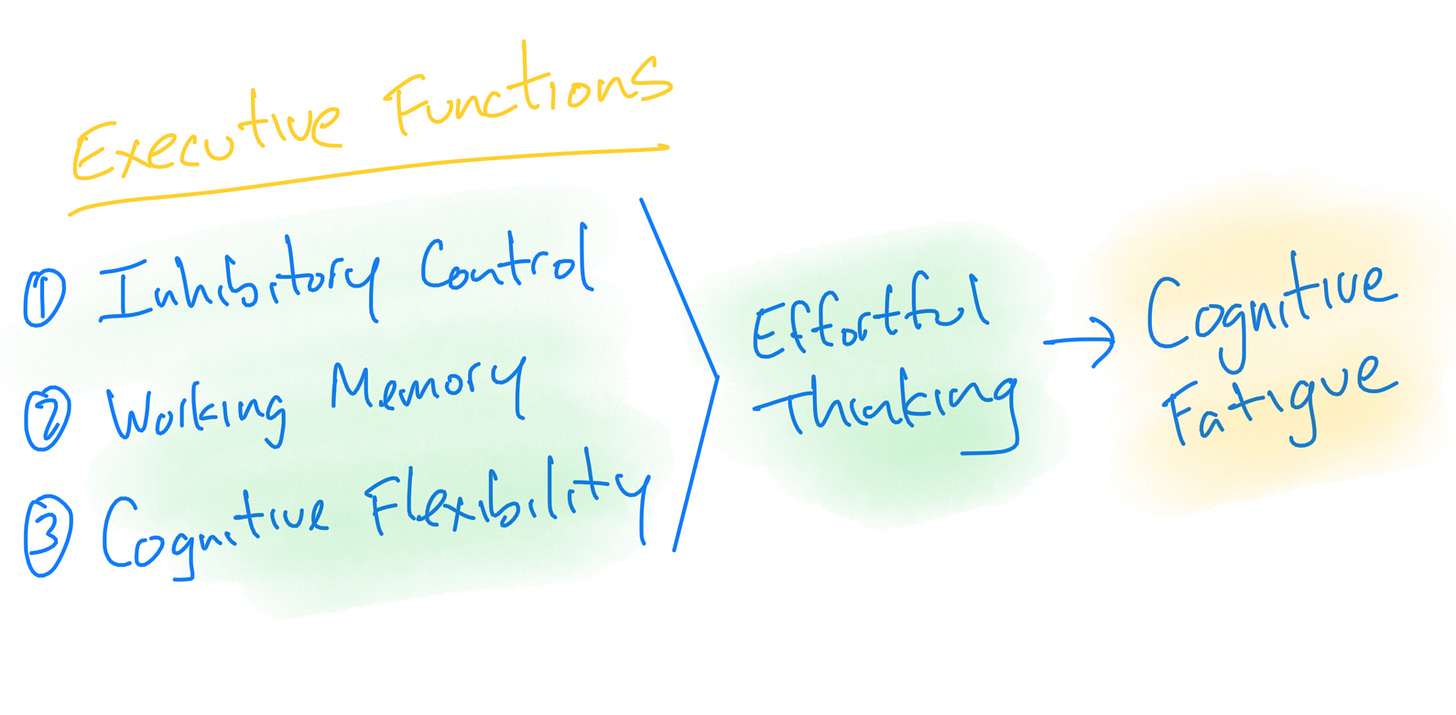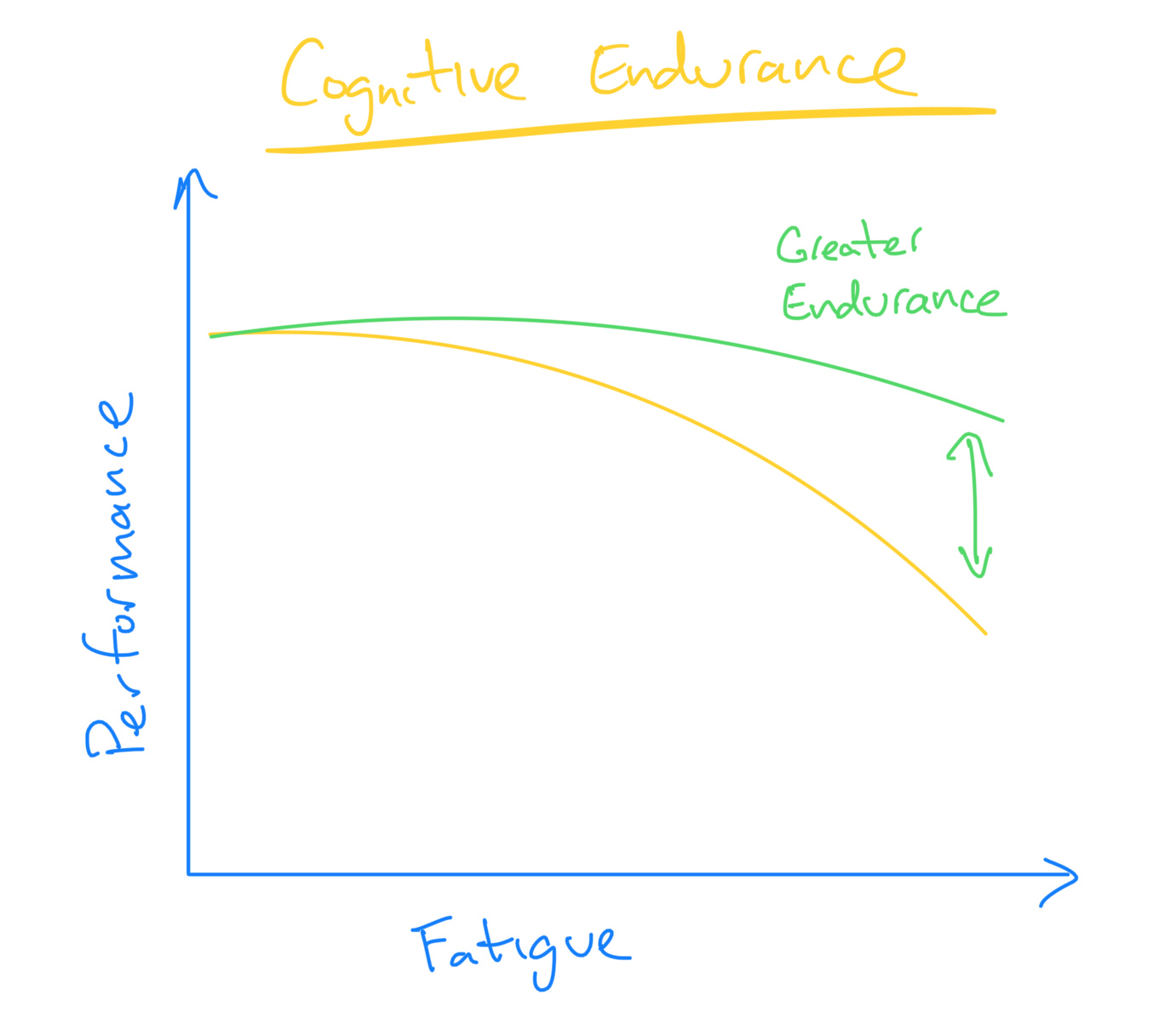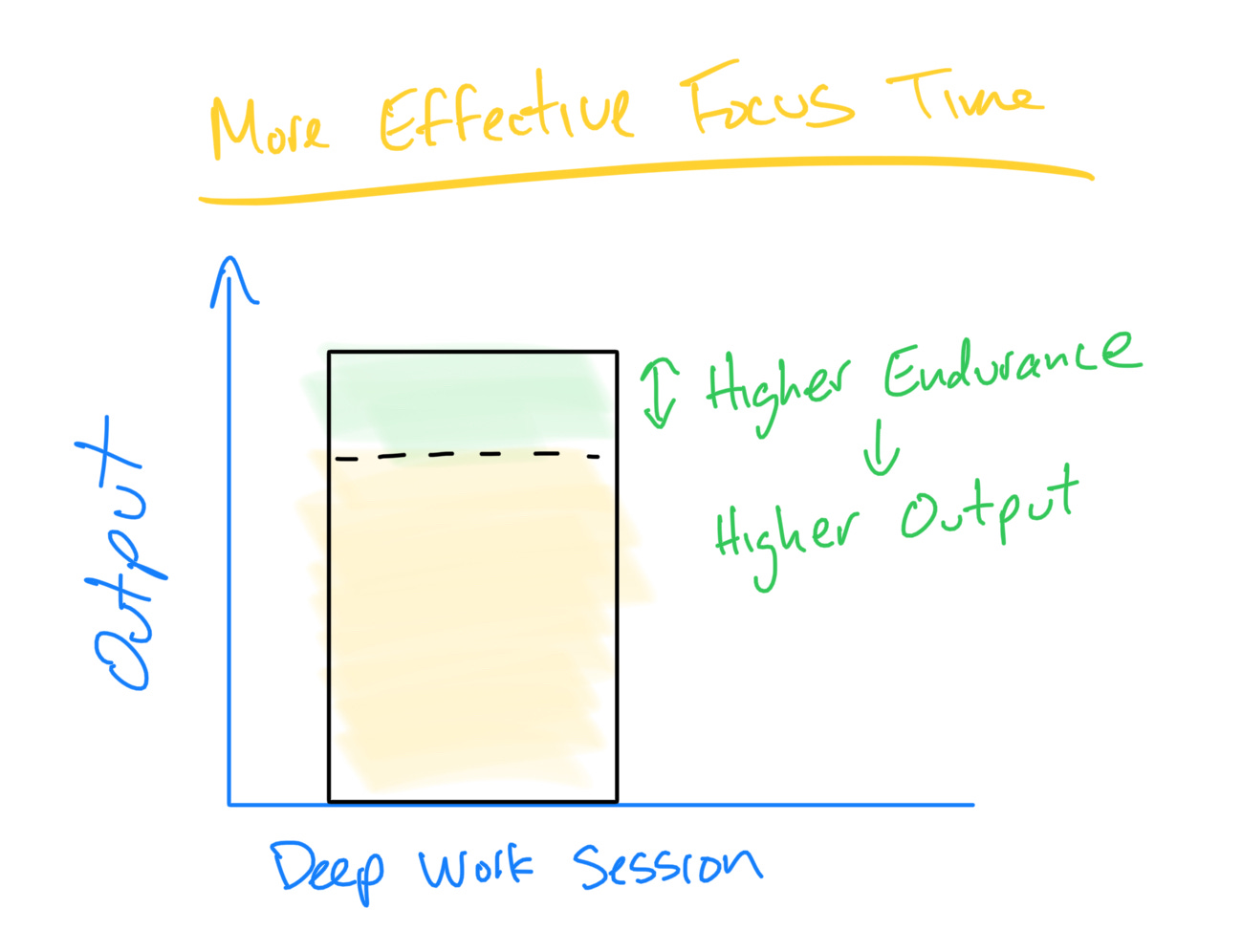Think Better: Increasing Cognitive Endurance
We can increase our brainpower. By reducing the effect of cognitive fatigue.
I’ve always been self-conscious about my intelligence. Oddly, the worry has helped me.
I did well enough in early schooling to be placed alongside “gifted” individuals. But as I progressed through school and into work, I often felt I wasn’t at the level of those around me. I just didn’t get things as fast as those around me. Or wasn’t able to solve problems like others could. My grades in college proved it to me.
To maintain my standing in school or work, I accepted I just had to spend more time than others. In school that meant earlier trips to the library than others. In work that meant more time re-reading things.
What I lacked in raw intellectual horsepower, I’d have to make up with more sustained effort. It wasn’t fun. It’s even been discouraging. But I reasoned that’s just the cards I was dealt.
The worry led me to consistent pursuits on how to work better. Or how to become better. I came across research indicating humans can improve our mental abilities.1
We can increase our brainpower through raising our cognitive endurance. I dug deeper on how it works and what we can do.
Cognitive Endurance
“My brain feels like mush”
I tell this to my music instructor after almost every lesson we do. Never mind I’m learning to play four chords on a piano. My brain feels like it did the equivalent of a hundred pushups.
We experience mental fatigue when we engage in effortful thinking. Effortful thinking occurs when we do something that requires our focus and brainpower. It’s not engaged when “multi-tasking” a project while watching Netflix. Nor is it engaged when we’re in autopilot with our tasks. Effortful thinking is engaged with activities such as understanding a document, learning something new, or solving problems.
Effortful thinking is engaged when we use our executive functions. Executive functions is a fancy term for the activities that make us think hard. This include three categories of activities2:
Executive functions (stuff that makes our brain tired)
Inhibitory control (keeping focus, resisting the urge to check the fridge)
Working memory (holding ideas in our mind and working with them, remembering and following driving directions)
Cognitive flexibility (changing perspective, brainstorming new ideas)
Our cognitive performance declines as we engage in effortful thinking. Just like our muscles fatigue and lift less after many reps at the gym. Our judgement, information processing, focus all decline with fatigue.
Cognitive endurance is our ability to sustain cognitive performance over time.
The cool part is we can increase our cognitive endurance. Like a long distance runner who builds endurance to tire less and run further, we can build our cognitive endurance to tire less and perform mental work longer.
How to Increase Cognitive Endurance
Effortfully think, regularly
The key to increase cognitive endurance is to engage in effortful thinking regularly. Our brains adapt to how we use it. The fun part is there’s a wide range of activities that engage effortful thinking. It’s not like we have to do consecutive math problems in our spare time (although solving math problems does help). For example, learning a new skill involves effortful thinking. Learn to draw and build endurance to solve problems at work. Regular practice can mean 20 minutes, three times a week. Consistency builds endurance.
How do we know we’ve engaged in effortful thinking? The best way to gauge effortful thinking is to notice how we felt and behaved with the task. If the task felt demanding, we needed to pause and think, or we felt mentally fatigued afterwards, we’ve engaged in effortful thinking.
Reduce competing triggers
At times I feel like a hamster conditioned to pull a lever when a bell rings. I pick up my phone when I see it in front of me. I pick up my phone for a “quick check” just to see what I’ve missed. This devolves into a doom-scroll of useless attention-bait updates.
It takes considerable self-control and self chastising to keep focus on my main task and to not reach for my phone. We require self-control when we’re faced with something vying for our attention. Self-control requires effortful thinking. It’s part of our executive functions. When we exert self-control we tap into the same brain resources as when we solve complex problems. The effort to resist my phone makes me worse at problem solving. Welp.
If we remove the need for self-control, we conserve our brainpower for our important tasks. Remove triggers that engage our self-control function. In my case, that means placing my phone out of view.
Enjoy the fatigue feeling
Humans follow a law of least effort. We naturally seek to achieve things with the least demanding course of action.3 Fatigue is a sign of effort. And so we naturally dislike fatigue. Good for conserving resources. Bad for growing ourselves.
Rather, if we understand fatigue is a signal to growth, we can find satisfaction in the feeling of fatigue. Similar to the satisfaction after a great gym workout, we can develop satisfaction following a great mental workout. When we enjoy something, we increase our motivation to persist and continue.
But enjoyment of the fatigue feeling doesn’t mean we should continue despite of fatigue. We still have to be aware to rest when our fatigue leads our performance to dip too much.
Why Care About Cognitive Endurance?
In the corporate world, career success is proportional to the complexity and scale of the problems we solve. The more complex and the bigger the scale of problems we solve, the more valuable we are. To solve complex problems, we need to think and work deeply.
Deep work, periods of intense focus on a singular task, enables us to do our most valuable work.4 Raise cognitive endurance and raise ability to get more from our deep work.
“I’m not as sharp as you. Can you do this?”
I hear this from older relatives once in a while. It often has to do with some task they’re not familiar with. As we age, our bodies and minds decline. We may feel cognitive fatigue earlier or more acutely. We risk a downward cycle where the increased fatigue leads us to engage in effortful thinking even less, resulting in further decline and increased fatigue. Cognitive endurance stretches our ability to employ our minds longer.
..And Therefore What?
Our brainpower isn’t fixed. Rather than resign to our level of brainpower, we can raise our level of brainpower. We can increase our ability to make better decisions, solve problems, learn things.
If we lean into effortful thinking, limit exhausting distractions, and enjoy the feeling of fatigue we can grow our cognitive endurance.
And whether we naturally solve problems quickly or not, we can all benefit to think better, longer.
Brown, Christina L., et al. Cognitive endurance as human capital. No. w30133. National Bureau of Economic Research, 2022.
Diamond, Adele. "Executive functions." Annual review of psychology 64 (2013): 135-168.
Kahneman, Daniel. Thinking, fast and slow. macmillan, 2011.
Newport, Cal. Deep Work: Rules for Focused Success in a Distracted World. United States, Grand Central Publishing, 2016.






